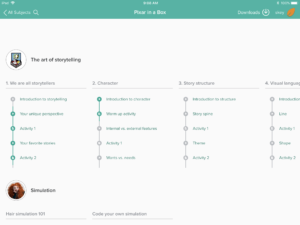Storytelling: The Why and the How
One of my favorite bloggers on trial advocacy is Mark Bennett. Mark has written a series of great posts at Simple Justice, Scott Greenfield’s blog on the topic of opening statements.
Mark offers 11 rules for better opening statements. One tip is to limit your opening statement to fifteen minutes. From experience, this is a solid tip. The rest of his rules could be summarized in a single sentence. Your opening should tell a story. Stories are all the rage in trial advocacy these days. If you have been to a CLE on trials. You have heard about story and why openings should be more like a story and less like a lawyerly presentation. The reason is simple. Jurors and judges love stories. Stories are more persuasive than speeches. Stories draw is in.
I have become frustrated with all of this talk of story. I was convinced, years ago, that storytelling is important for opening statements, for briefs, and even for simple motions. But CLE programming is light on nuts and bolts instruction on how to tell a good story. And that was why I was excited to learn about Pixar’s online class on storytelling offered through Kahn Academy. The class is excellently done, with great videos (each one tells a story) and activities to work on to get better at story telling. The video series is not aimed at lawyers, but it is exactly the storytelling 101 I’ve been looking for. I cannot give a comprehensive recommendation here because I am at the beginning of the lesson.
And, in case you aren’t aware of Pixar— Pixar is the company that perfected computer animation in the 1990s with Toy Story and with other great films. I have long been a fan of their work. They have not just made some of the best animated films of the past century, but some of the best films, period. Their success lies not just in technological achievement — though they have done some remarkable stuff — but in the craft of storytelling. Here are some screenshots of the table of contents for the series.

If you have been told that you need to embrace storytelling but you aren’t sure what to do, I hope that this will be a good resource for you. And how cool is Kahn Academy? It has been a go-to place for my children to supplement their school instruction for quite some time. But I had no idea that there was such great stuff on there for adults.








